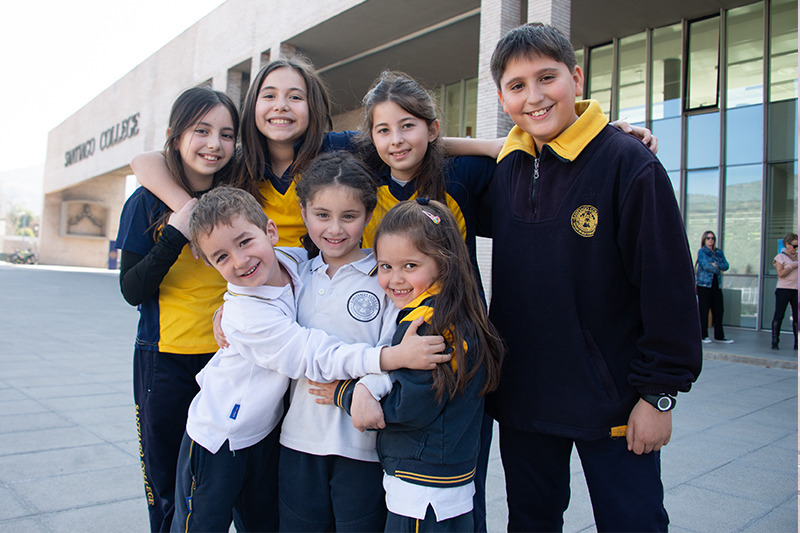

Santiago College is one of over 5900 schools in 690 countries offering IB curricular programmes across the world, providing a challenging academic continuum from early childhood to graduation, focused on developing life-long learners who will build a better world through intercultural understanding and respect. Using innovative, high-quality, and inclusive teaching practices, students are pushed to think critically and learn across disciplinary and cultural boundaries, developing the skills they need to thrive in further educational settings and in their lives as a whole.
IB World schools not only comply with stringent standards to be authorized as such, but must also undergo periodic evaluations to ensure that IB programme standards and practices are being maintained. This allows universities across the world to recognize IB diplomas as evidence of academic achievement no matter where their school is located, allowing Santiago College students to access higher education institutions in a wide variety of countries.
The IB at Santiago College
All students at Santiago College participate in the three IB programmes it offers:
Our continuum of IB Programmes allow all our students participate in a unified learning journey that nurtures students from their earliest years to graduation. The three programs are designed to build upon one another, ensuring consistency, coherence, and a shared educational philosophy, while at the same time honoring the developmental processes of students. The transdisciplinary essence of the PYP, where all learning occurs under the umbrella of one of six inquiry themes feeds into the interdisciplinary nature of in the MYP, giving students an experience of the interconnectedness of knowledge before diving into the different disciplinary areas. Students are expected to be agents of their own learning, developing transferable conceptual understandings about the world around them.
Participation in the IB Diploma Programme in High School is mandatory for all students, as graduation requirements include completion of CAS requirements, the IB Theory of Knowledge course as well as sitting for an IB English certificate. Students opt to take the full IB Diploma examinations, which are sat in May of grade 12, and in this case must also complete the Extended Essay requirement in a subject of their choice. Concurrently with the IB Diploma Programme, high school students fulfill the requirement of the Chilean National curriculum and prepare for the national Chilean university entrance examinations.
IB Diploma Subjects offered
Group 1 Studies in Language and Literature
IB English Language and Literature HL and SL
IB English Language and Culture SL
IB Spanish Language and Literature HL and SL
Group 2 Language Acquisition
IB English B HL
IB Spanish B HL
Group 3 Individuals and Societies
IB History HL and SL (in Spanish)
IB Psychology HL and SL (in Spanish)
IB Philosophy HL and SL (in Spanish)
IB Economics HL and SL (in Spanish)
IB Business and Management HL and SL (in English)
IB Environmental Systems and Societies SL (in English)
Group 4 Sciences
IB Biology HL and SL (in Spanish)
IB Physics HL and SL (in Spanish)
IB Chemistry SL (in Spanish)
IB Environmental Systems and Societies SL (in English)
Group 5 Mathematics
IB Mathematics Analysis and Approaches HL and SL (in Spanish)
IB Mathematics Applications and Interpretations SL (in Spanish)
Group 6 The Arts
IB Music HL and SL (in Spanish)
IB Theatre HL and SL (in Spanish)
IB Visual Arts HL and SL (in Spanish)